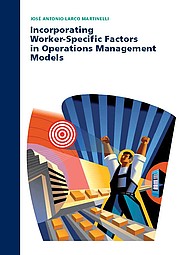Incorporating Worker-Specific Factors in Operations Management Models Defended on Thursday, 25 November 2010
To add value, manufacturing and service operations depend on workers to do the job. As a result, the performance of these operations is ultimately dependent on the performance of individual workers. Simultaneously, workers are major stakeholders of the firm. Workers spend a considerable amount of time in their lives at their job and depend on that job to sustain themselves and their families. As a result, firms wishing to satisfy their primary stakeholders should consider workers’ job satisfaction in the design of their operations. Especially given that job satisfaction can promote other positive outcomes for the firm, including lower personnel turnover and accident rates.
This thesis addresses the key question of how common operations management decisions may have an impact on a worker’s individual performance and his job satisfaction. In particular, we first provide a literature survey of psychology and ergonomics linking operations decision variables with performance and job satisfaction. Next, we study the effects of assigning goals on performance and work pace regulation. We identified steady work pace regulation patterns associated with challenging goals. Finally, we studied the problem of where to store items in a warehouse such that efficiency (cycle time) and well-being (discomfort) criteria are balanced. We found that both criteria have a certain degree of alignment and that simultaneous improvements in both criteria are possible.
Keywords
behavioral operations management, human factors, goal setting, worker, warehousing, ergonomics, utility analysis














